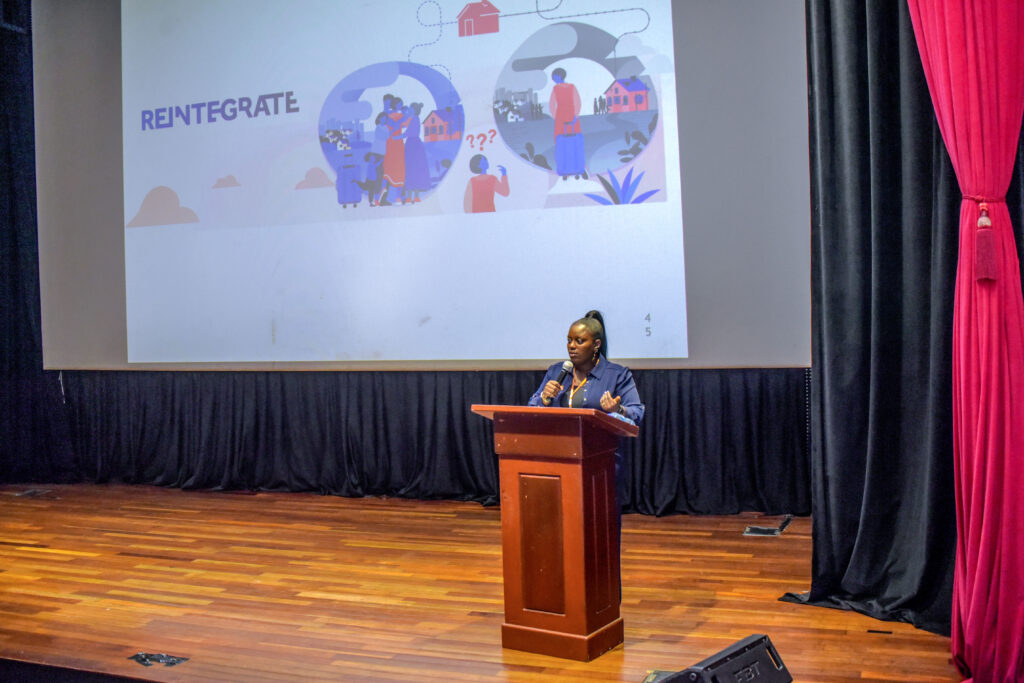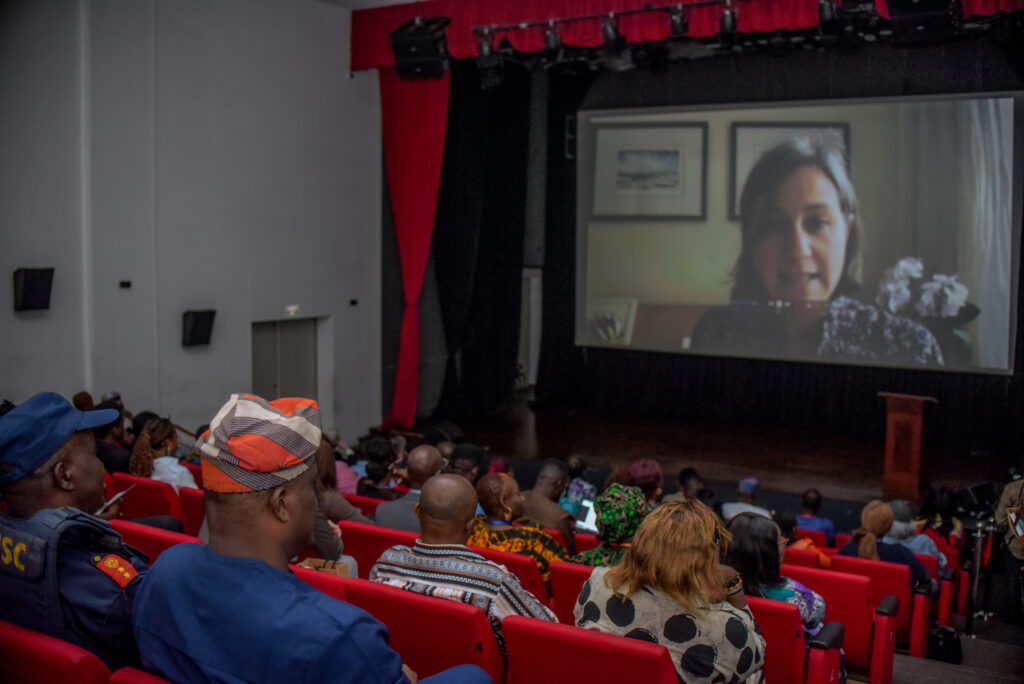On April 23, Dr. Sarah Adeyinka presented the findings of the Nigeria case study to diverse stakeholders in Lagos, Nigeria

Insights from Dr. Sarah Adeyinka’s findings in the Nigeria data
On April 23, the Reintegrate study team held its Nigeria dissemination event in Lagos, where Dr. Sarah Adeyinka presented key findings from the Nigeria case study. Based on research across Abuja, Lagos, Oyo, and Edo States, the study underscores that reintegration is not just a policy add-on, but a national necessity.
Returnees who received structured, multi-level support reported significantly better well-being than those who did not, with the latter group facing unstable housing, mental health challenges, and lack of livelihoods. Reintegration governance in Nigeria is evolving from EU-funded, donor-driven efforts to more nationally owned systems. However, structural and coordination challenges persist, with fragmented goals among government agencies, NGOs, and international organizations.
Stakeholders present included the Hon. Commissioner for Youth & Social Development (Lagos State), Special Advisers to the Lagos State Governor on Sustainable Development Goals, Special Adviser to the Oyo State Governor on Migration & Homeland Security, the General Manager of the Lagos State Neighborhood Safety Agency, the South-West Zonal Coordinator of the National Commission for Refugees, Migrants, and Internally Displaced Persons, the Executive Director of the Media Coalition to Halt Human Trafficking, the Belgian Deputy Head of Mission, CSOs, activists, and so many others, demonstrating broad-based commitment to improving reintegration policy.
Dr. Adeyinka shared returnee stories that exposed the harsh realities of trafficking and failed migration journeys. Her call was clear: reintegration must be dignified, coordinated, and locally anchored, where return feels like reconnection, not rejection.

Dr. Kuschminder joined virtually as she was unfortunately unable to attend the event in person.
Key findings of the study
More Than Just a Ticket Home: How Reintegration Governance Shapes Returnees’ Wellbeing in Nigeria
When return migrants make the journey back home, the challenges don’t end at the airport. Reintegration- rebuilding lives, finding stability, and recovering from often traumatic migration experiences, is a complex and fragile process. Our recent findings shed light on the critical role of Reintegration Governance (RG) in shaping returnees’ wellbeing, and Nigeria’s evolving reintegration landscape offers important lessons.
More Support, Better Wellbeing
We asked returnees to rate their wellbeing on a scale of 1 to 5 after undergoing reintegration. The results were clear: returnees who received multiple forms of reintegration assistance reported the highest average wellbeing at 3.0, compared to just 1.8 among those who received no assistance at all. Those receiving diverse forms of support were also more likely to run small businesses, earn income from different sources, and achieve financial stability.
This aligns with other recent studies (like Barnett et al., 2023) and reinforces a simple truth: comprehensive support makes a difference. Different reintegration actors offer different types of help such as skills training, mental health support, seed funding, housing, each playing a part in a returnee’s journey. Rather than competing, these efforts can be complementary, forming a more holistic safety net.
However, many returnees fall through the cracks. Access, eligibility, and awareness remain significant barriers, particularly for those who return spontaneously or are forcibly returned. A more integrated, inclusive approach, one that ensures no one is excluded based on how they returned, would better serve those in the most vulnerable situations.
Reintegration Governance in Nigeria: A Work in Progress
Nigeria stands out as a dynamic case of reintegration governance in transition. In recent years, leadership has moved from international actors to a more nationally owned and collaborative system, with the National Commission for Refugees, Migrants, and Internally Displaced Persons (NCFRMI) taking a central role. This shift toward local ownership is promising, especially as Nigeria looks to expand its influence in bilateral and multilateral reintegration diplomacy.
Yet, many returnees have never heard of NCFRMI, and the institution is still establishing its presence and legitimacy. Effective reintegration governance needs visibility and trust on the ground. Returnees, especially women, trafficking survivors, and those with mental health needs, require tailored, sensitive support. But currently, gender-specific policies are lacking, and mental health services are sparse.
Building a Stronger Future
If Nigeria wants to turn reintegration into a sustainable, empowering process, several steps are critical:
-
Expand access to reintegration support for all returnees, regardless of return modality.
-
Invest in mental health services and rehabilitation for trafficking survivors.
-
Develop gender-sensitive policies that reflect the lived experiences of female returnees.
-
Strengthen collaboration between government bodies, NGOs, international partners, and local actors.
-
Increase funding and capacity-building to ensure long-term institutional effectiveness.
In short, reintegration is not just a bureaucratic process, it’s about rebuilding lives. With more inclusive, coordinated governance, Nigeria has the potential to create a reintegration system that supports returnees not just in surviving, but in thriving.
